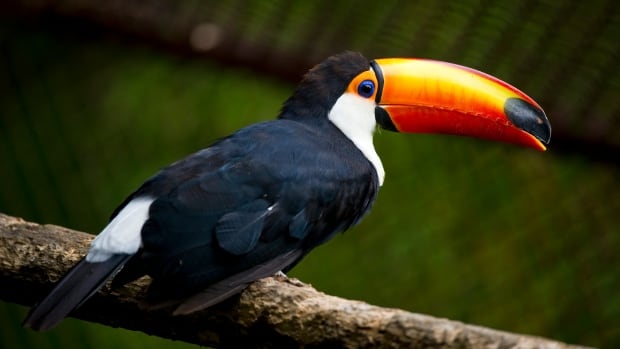
Wild animals such as toucans, monkeys, bears and jaguars are openly and increasingly sold on social media platforms, including Facebook, Instagram and TikTok, as illegal wildlife trafficking in Mexico threatens species in the biodiverse country, a U.S. environmental group said Wednesday.
The Arizona-based Center for Biological Diversity said it had filed a complaint to Mexican state prosecutors, arguing that toothless regulation was allowing the illegal wildlife trafficking to continue.
“Wildlife trafficking in Mexico is out of control,” the Center for Biological Diversity said in a report, pointing to lax penalties, lack of political will and unregulated markets, despite laws prohibiting the trade of protected species.
Neither Mexico’s environmental ministry nor the social media networks immediately responded to requests for comment.
Researchers who scoured social networks, visited local markets and interviewed experts and officials said propagation of false online profiles made the trade harder for authorities to regulate.
Mexico home to 10% of world’s known species
Mexico is one of the world’s few “megadiverse” countries, housing some 10 per cent to 12 per cent of the world’s known species. But according to the study, illegal trafficking is having an irreversible impact on the country’s ecosystems.
The populations of native species such as the totoaba, vaquita marina, howler monkey, scarlet macaw and the sea cucumber have plunged in recent years due to demand from China alongside the involvement of organized crime in the business, worth an estimated $100 billion US annually.
LISTEN | Jane Goodall on fighting wildlife trafficking:
Shift – NB8:47Fighting wildlife trafficking
Dr. Jane Goodall asks people to #StandWithJane against poaching of apes, elephants, parrots and more
Howler monkeys are sold as exotic pets, while vaquitas, the world’s smallest porpoises, are among the planet’s most endangered mammals as they are often trapped in nets of fishers looking for totoabas, whose swim bladders are used in traditional Chinese medicine.
The report said a Mexican special prosecutor’s office had tackled internet wildlife trafficking until the start of 2019, but the office was shut to save money under the administration of President Andres Manuel Lopez Obrador.
“Budget cuts to the environmental agency responsible for verifying, monitoring and inspecting the sale of wildlife in Mexico have allowed the problem to continue to grow,” the report noted.